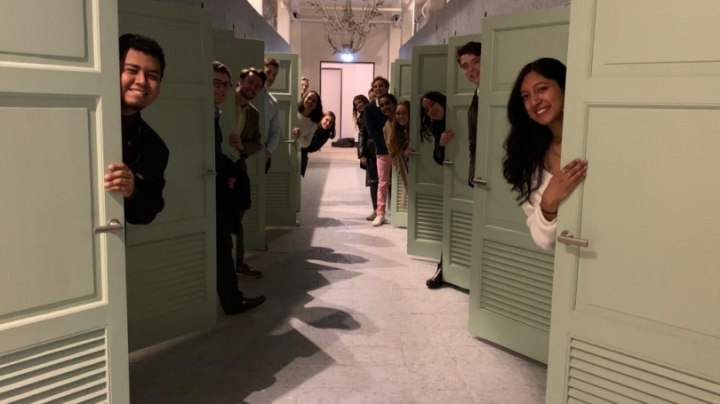Read the full story by Tania Convertini and the Winter 20 Rome Language Study Abroad-Plus Students, published by the Dartmouth Center for the Advancement of Learning.
After their time in Italy was cut short due to the COVID-19 health crisis, Winter 2020 Rome LSA+ director Tania Convertini, language program director in the Department of French and Italian, and students had to quickly restructure their term for remote learning. Here they share lessons learned and suggestions for faculty and students transitioning to remote learning this spring.
On Feb. 24, my Rome LSA+ students and I gathered at my house for dinner after their week of break and exploration across Italy. Over dinner, before resuming classes the day after, we spoke about the places they visited, what they learned, and how they had applied the intercultural learning abilities developed during our trip to Milan. At that time, we were already reading news about the coronavirus. We were becoming increasingly aware of our behaviors, but we were not worried yet about what we now know would become a pandemic problem. We were ready to resume our program together spending the last three weeks of it on the completion of an interdisciplinary field research project. The program’s culminating experience would have given students the opportunity to apply all the skills developed in the three courses taken in Rome. We all shared a sense of excitement and anticipation for what was still ahead of us.
Only two days later, I had to announce to the group that they should return to the United States as soon as possible and that the program would continue remotely. Of course, nobody was happy about it, but we did what we had learned to do in the previous weeks. We put our minds together and thought of meaningful solutions to the problem.
For the latest information on Dartmouth’s response to the pandemic visit the COVID-19 website.
